Key Takeaways
-
Termites vs. Earwigs: Both thrive in dark, moist environments, but termites damage wood while earwigs feed on plants and insects without harming structures.
-
Physical Differences: Termites are soft, pale, and lack pincers; earwigs are dark, elongated, and have noticeable rear pincers.
-
Habitat and Behavior: Termites form hidden colonies in wood or soil, silently causing damage; earwigs live outdoors in damp areas and rarely harm homes.
-
Signs of Infestation: Termites leave mud tubes, hollow wood, wings, and damage; earwigs are simply seen in moist spots with little evidence of harm.
-
Prevention Strategies: Prevent termites by managing moisture and inspecting wood structures; deter earwigs by reducing outdoor moisture and sealing entry points.
-
When to Call a Professional: Contact pest control immediately for termites; earwig help is only needed if indoor sightings are frequent and persistent.
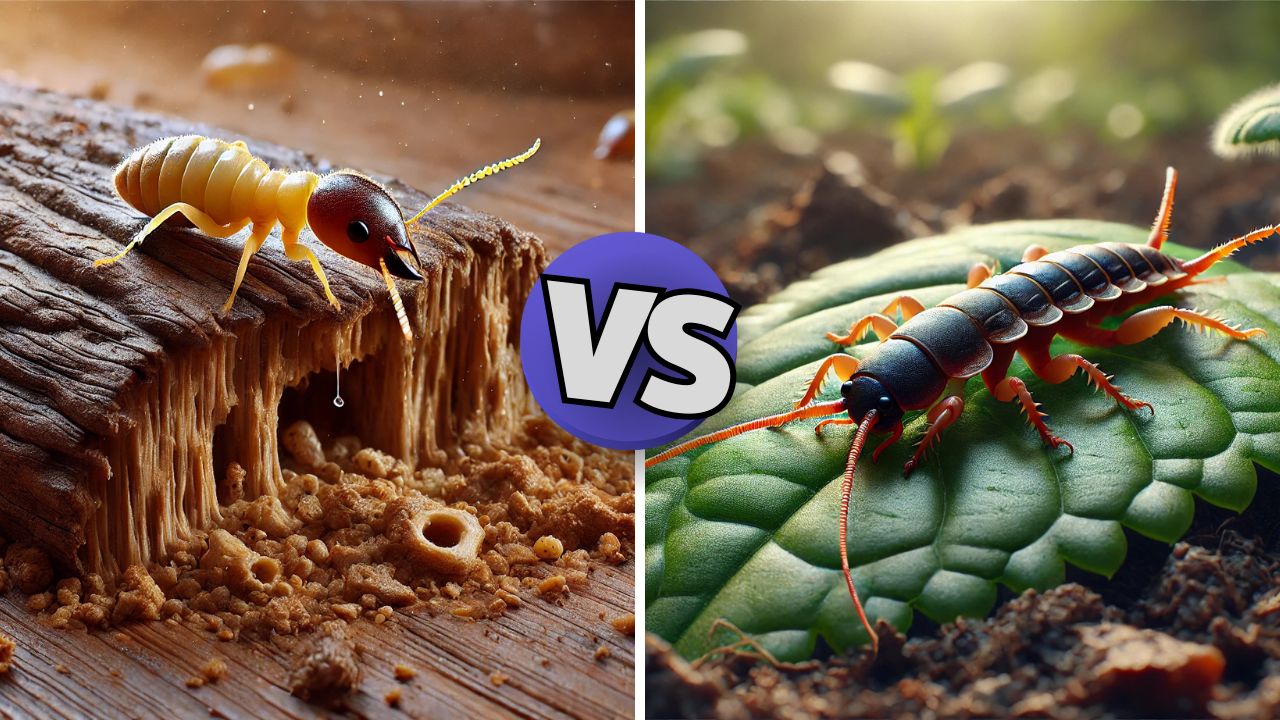 When spotting insects in or around your home, two pests that are often easy to confuse are termites and earwigs due to their similar habitats and size. They might seem familiar, but they are very different. Knowing what’s hiding around your home can save you from major headaches and expensive repairs. However, understanding the difference between termites and earwigs is essential for proper identification and pest control.
This article explains how to identify these pests, their unique traits, and practical tips to manage infestations.
Not sure if you’re dealing with termites or earwigs at your home? Our specialists can help you pinpoint the problem accurately. Schedule a Free Pest Inspection Visit today and keep your property pest-free!
When spotting insects in or around your home, two pests that are often easy to confuse are termites and earwigs due to their similar habitats and size. They might seem familiar, but they are very different. Knowing what’s hiding around your home can save you from major headaches and expensive repairs. However, understanding the difference between termites and earwigs is essential for proper identification and pest control.
This article explains how to identify these pests, their unique traits, and practical tips to manage infestations.
Not sure if you’re dealing with termites or earwigs at your home? Our specialists can help you pinpoint the problem accurately. Schedule a Free Pest Inspection Visit today and keep your property pest-free!
Is It a Termite or an Earwig?
Termites and earwigs like damp, dark spots, but their similarities end there. Termites can silently wreck your home. Earwigs, despite looking scary, are mostly harmless nuisances.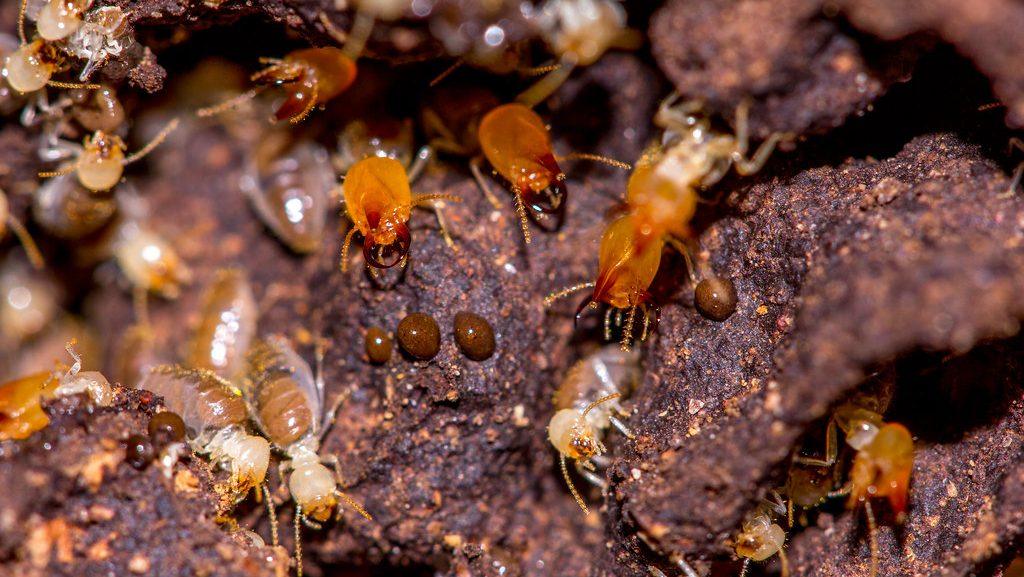

Not getting a solution?
Get your free pest control estimate today!What Are Termites?
Termites rarely show up out in the open. Instead, they hide behind walls, quietly chewing on wood around the clock. They are social insects that live in colonies and are known for feeding on wood and other cellulose-based materials. They are among the most destructive types of pests for homeowners due to their potential to cause significant structural damage which can cause billions in damage every year. An Inspection should be done if their problem is evident.Key Characteristics of Termites
-
 Appearance: Termites have creamy-white, soft, light-colored bodies like the size of a grain of rice. Worker termites are pale and measure around 3-4 millimeters, while reproductive/winged termites (swarmers) are darker and have two pairs of identical wings. They have no pincers at all.
Appearance: Termites have creamy-white, soft, light-colored bodies like the size of a grain of rice. Worker termites are pale and measure around 3-4 millimeters, while reproductive/winged termites (swarmers) are darker and have two pairs of identical wings. They have no pincers at all. -
 Habitat: Termites lives underground or hidden inside your walls in huge colonies. Their homes have thousands of workers constantly eating wood. If you notice mud tunnels climbing your home’s foundation, termites quietly sneak inside. They thrive in moist, warm environments and are often found in wood structures, soil, and mulch.
Habitat: Termites lives underground or hidden inside your walls in huge colonies. Their homes have thousands of workers constantly eating wood. If you notice mud tunnels climbing your home’s foundation, termites quietly sneak inside. They thrive in moist, warm environments and are often found in wood structures, soil, and mulch. -
 Behavior: Termites feed on wood and cellulose materials, creating tunnels and weakening structural integrity over time.
Behavior: Termites feed on wood and cellulose materials, creating tunnels and weakening structural integrity over time.
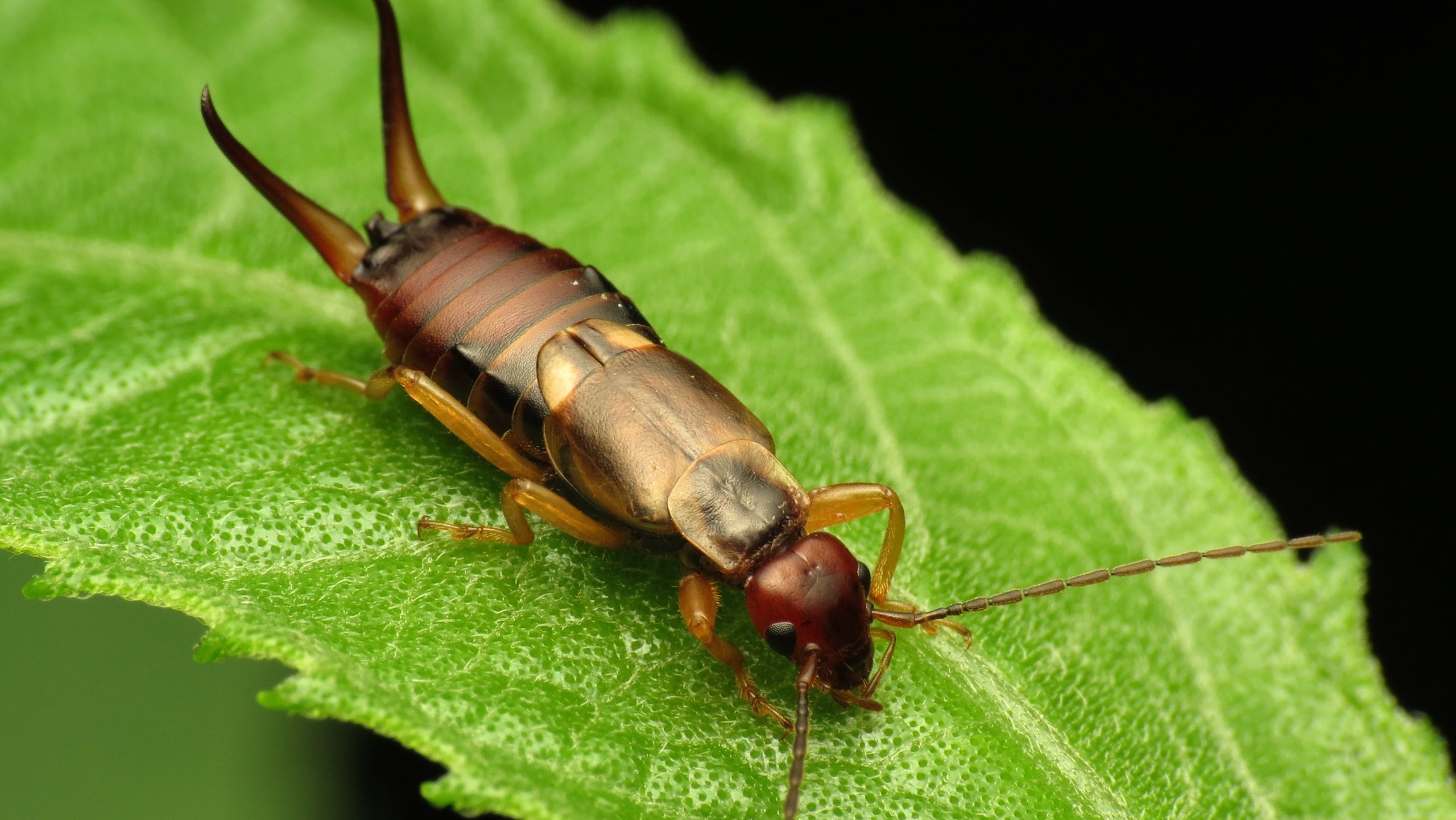
What Are Earwigs?
Earwigs are nocturnal insects commonly found in damp, dark areas. Despite their intimidating pincers, they don’t damage your home’s structure as they are mostly harmless to humans and pets. They’re loners who sometimes accidentally wander inside looking for moisture. They’re the awkward visitors of the insect world—annoying, but harmless.Key Characteristics of Earwigs
-
 Appearance: Earwigs are dark brown or black armored-looking bodies with elongated, flat bodies with prominent pincers at the back. They have long, segmented antennae. They are easily identified by their pincers (cerci) at the rear end. They have wings but rarely fly.
Appearance: Earwigs are dark brown or black armored-looking bodies with elongated, flat bodies with prominent pincers at the back. They have long, segmented antennae. They are easily identified by their pincers (cerci) at the rear end. They have wings but rarely fly. -
 Habitat: Earwigs are solitary creatures that avoid big groups. They prefer damp, shady outdoor spots, moist environments, such as under rocks, flowerpots, garden mulch, or decaying leaves. At night, they explore, feeding on decaying plants or small insects. Indoors, they may be found in basements or bathrooms.
Habitat: Earwigs are solitary creatures that avoid big groups. They prefer damp, shady outdoor spots, moist environments, such as under rocks, flowerpots, garden mulch, or decaying leaves. At night, they explore, feeding on decaying plants or small insects. Indoors, they may be found in basements or bathrooms. -
 Behavior: Earwigs feed on decaying organic matter, plants, and smaller insects. They do not cause structural damage like termites.
Behavior: Earwigs feed on decaying organic matter, plants, and smaller insects. They do not cause structural damage like termites.
Signs of Termite and Earwig Infestations
Knowing the signs of an infestation can help you take action early and prevent further issues.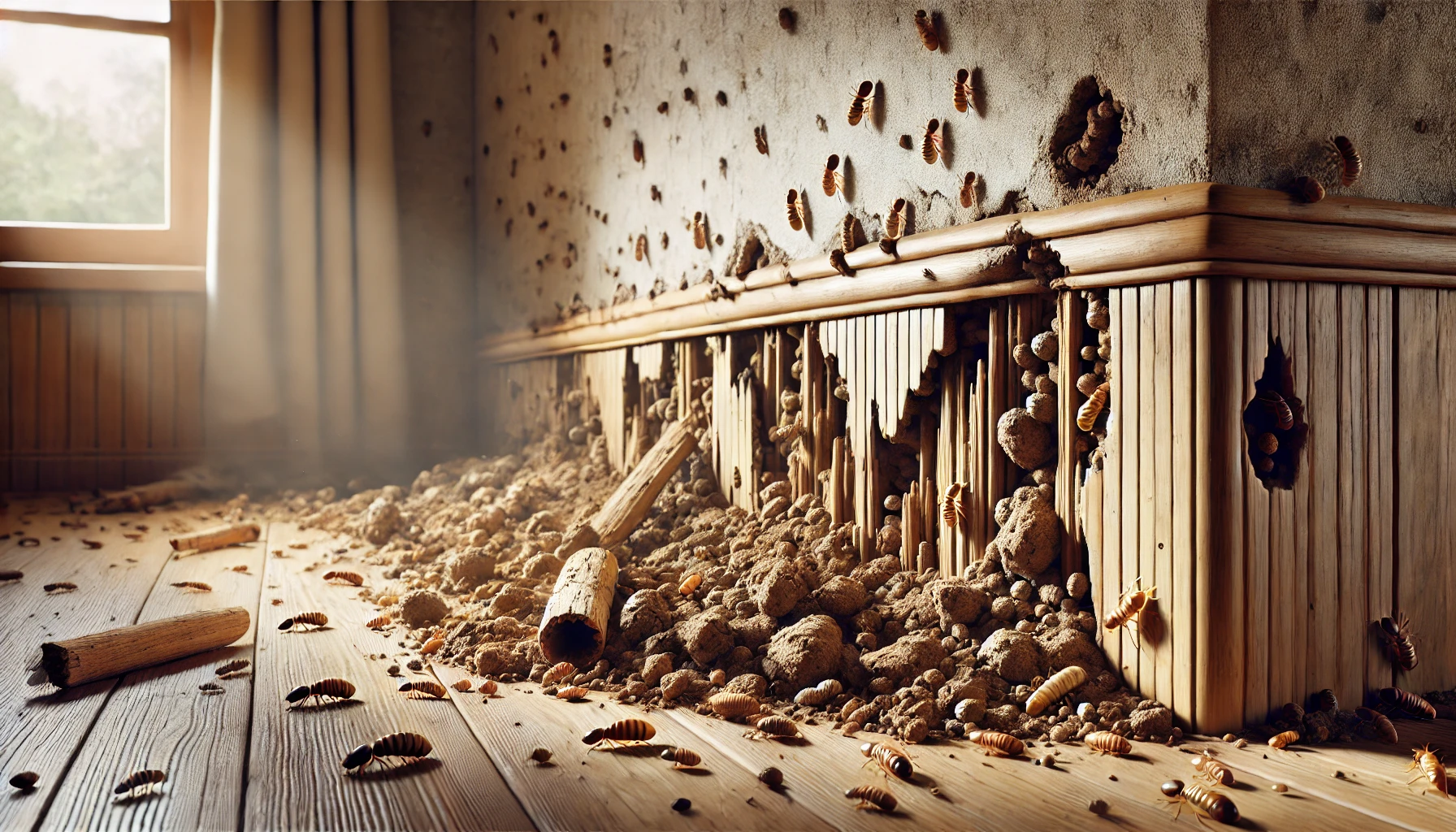 Signs of Termite Infestation
Termites only eat wood and paper materials. This makes them a homeowner’s nightmare. They quietly hollow out your walls, floors, and ceilings. Repairs from termite damage often cost thousands of dollars. Signs of termites infestation include:
Signs of Termite Infestation
Termites only eat wood and paper materials. This makes them a homeowner’s nightmare. They quietly hollow out your walls, floors, and ceilings. Repairs from termite damage often cost thousands of dollars. Signs of termites infestation include:
- Hollow-sounding wood when tapped or feels hollow.
- Mud tubes along walls or foundations.
- Discarded wings from reproductive termites.
- Visible damage to wooden structures.
- Swarms of flying termites around windows in springtime.
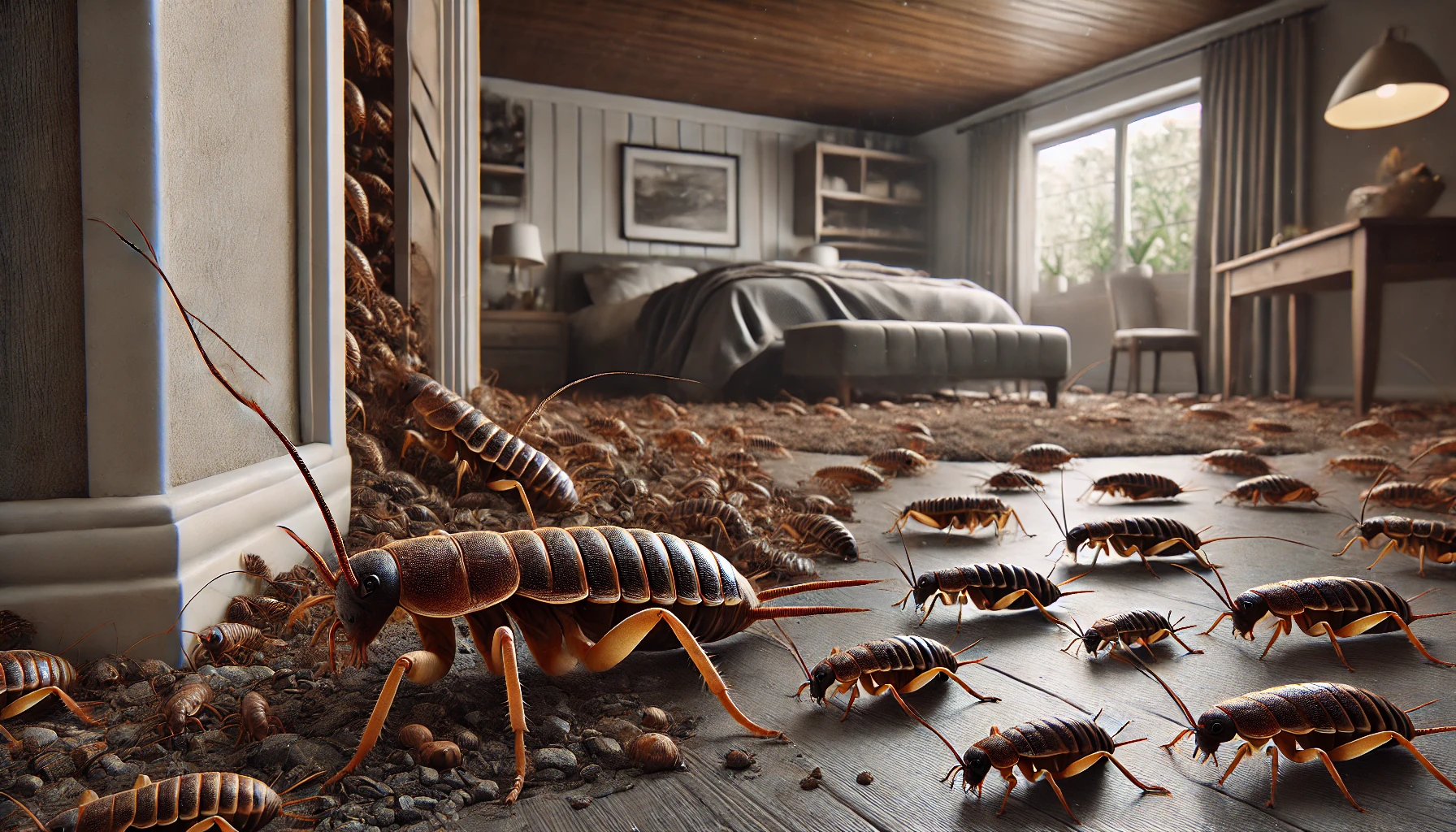 Signs of Earwig Infestation
Earwigs don’t eat wood. They nibble garden plants, making small holes in leaves or petals. Inside your home, they’re just unwanted guests. They might pinch if disturbed, but it’s rare and painless. Overall, earwigs won’t harm your home or your wallet. Signs of Earwigs Infestations include:
Signs of Earwig Infestation
Earwigs don’t eat wood. They nibble garden plants, making small holes in leaves or petals. Inside your home, they’re just unwanted guests. They might pinch if disturbed, but it’s rare and painless. Overall, earwigs won’t harm your home or your wallet. Signs of Earwigs Infestations include:
- Presence of earwigs in damp areas, especially during the night.
- Damage to plants and flowers, as earwigs feed on foliage.
- Clusters of earwigs under rocks, woodpiles, or mulch.
Earwigs vs Termites: Key Differences
Understanding the difference between earwigs and termites helps in accurate identification. Here’s a quick comparison:| Feature | Earwigs | Termites |
|---|---|---|
| Appearance | Dark brown, flat, with pincers | Light-colored, soft-bodied |
| Wings | None | Reproductive termites have wings |
| Habitat | Moist, dark areas | Wood, soil, and cellulose-rich areas |
| Diet | Decaying matter, plants, small insects | Wood and cellulose materials |
| Damage | Minor damage to plants | Structural damage to homes |
How to Identify Earwigs and Termites
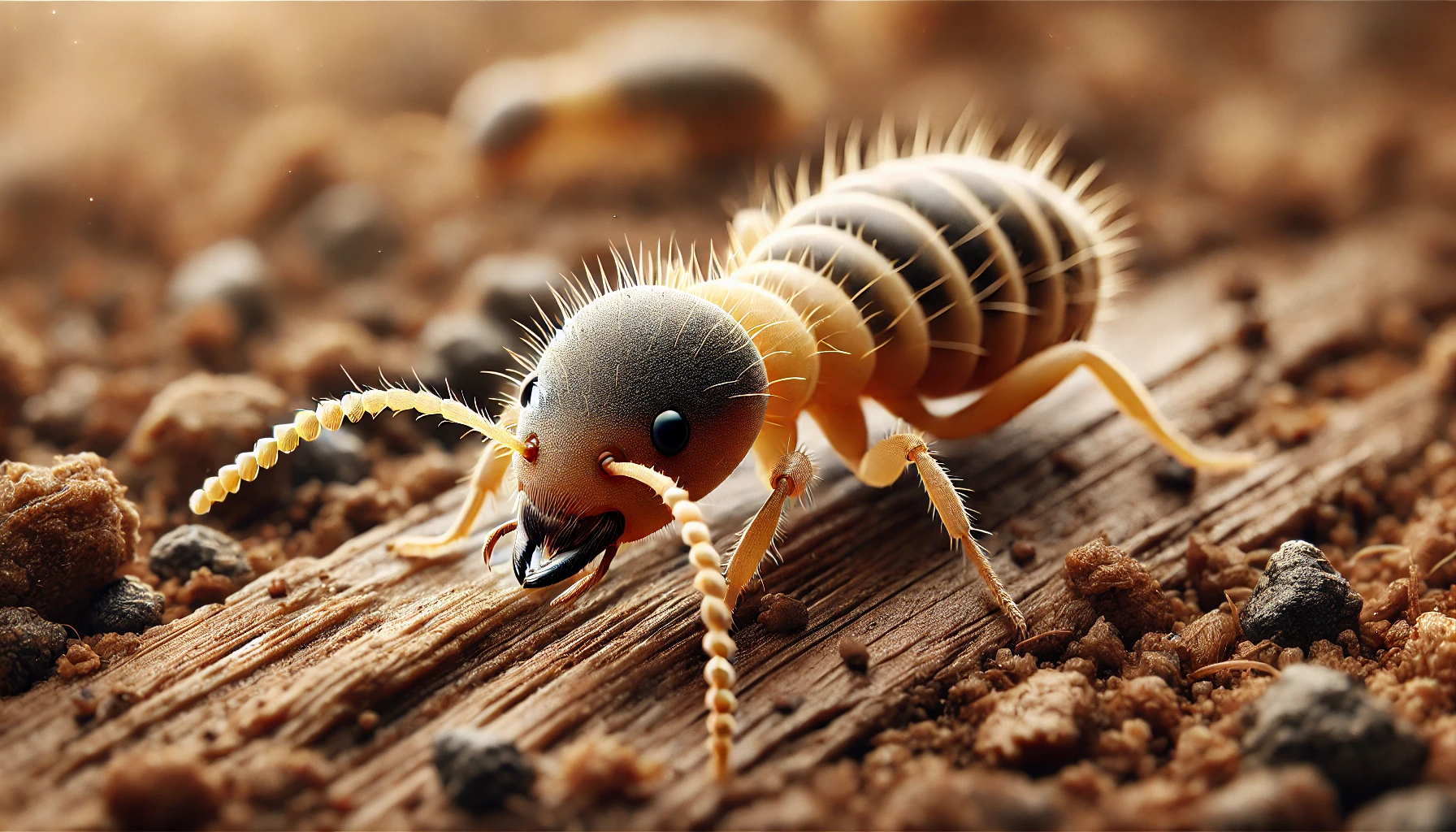 Identifying Earwigs
Identifying Earwigs
- Look for dark-colored insects with prominent pincers at their rear.
- Check damp outdoor areas, such as under rocks, mulch, or leaf litter.
- Indoors, inspect bathrooms, basements, and laundry rooms.
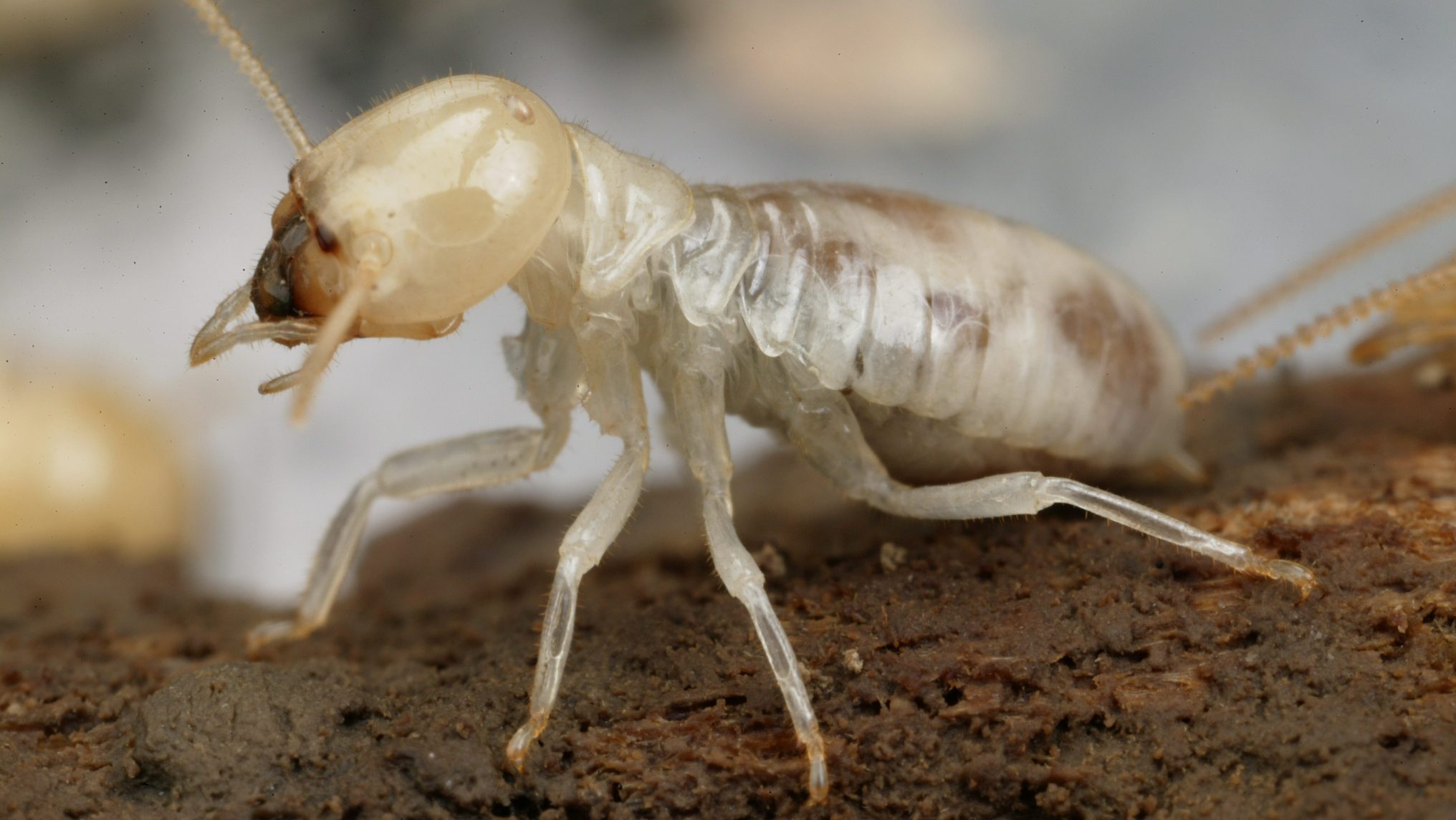 Identifying Termites
Identifying Termites
- Look for pale insects with straight antennae and soft bodies.
- Inspect wooden structures for mud tubes, hollow wood, or visible damage.
- During swarming season, look for discarded wings around windows or doors.
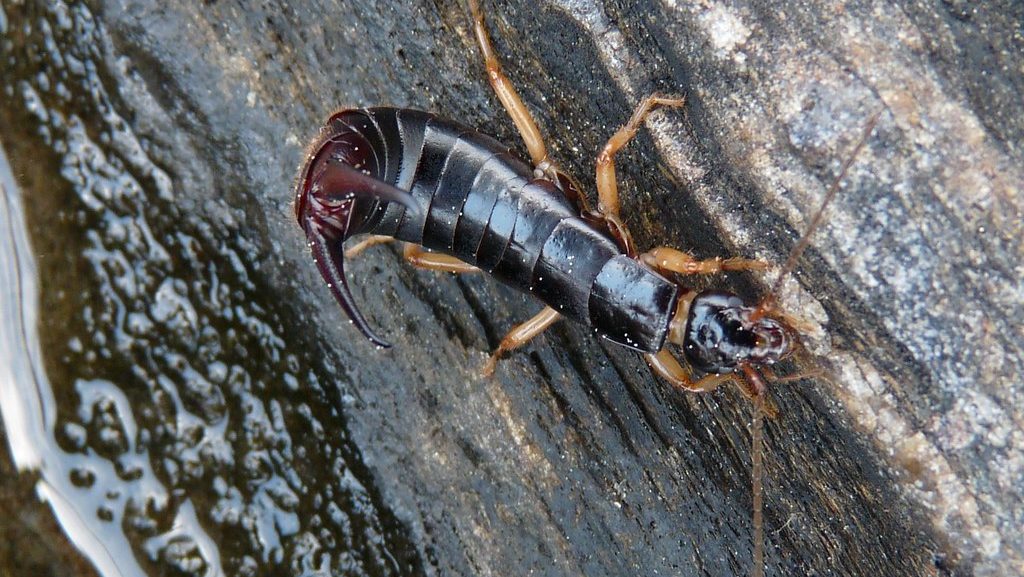
Tips for Preventing Earwigs
-
Reduce outdoor moisture by fixing leaks and improving drainage.
-
Remove leaf piles, extra mulch, and garden debris around your home.
-
Use yellow outdoor lights instead of bright white bulbs to attract fewer earwigs.
-
Set simple outdoor traps—like damp newspaper rolls—to catch and remove them easily.
-
Seal cracks and crevices around windows, doors, and foundations.
-
Keep mulch and decaying organic matter away from your home’s foundation.
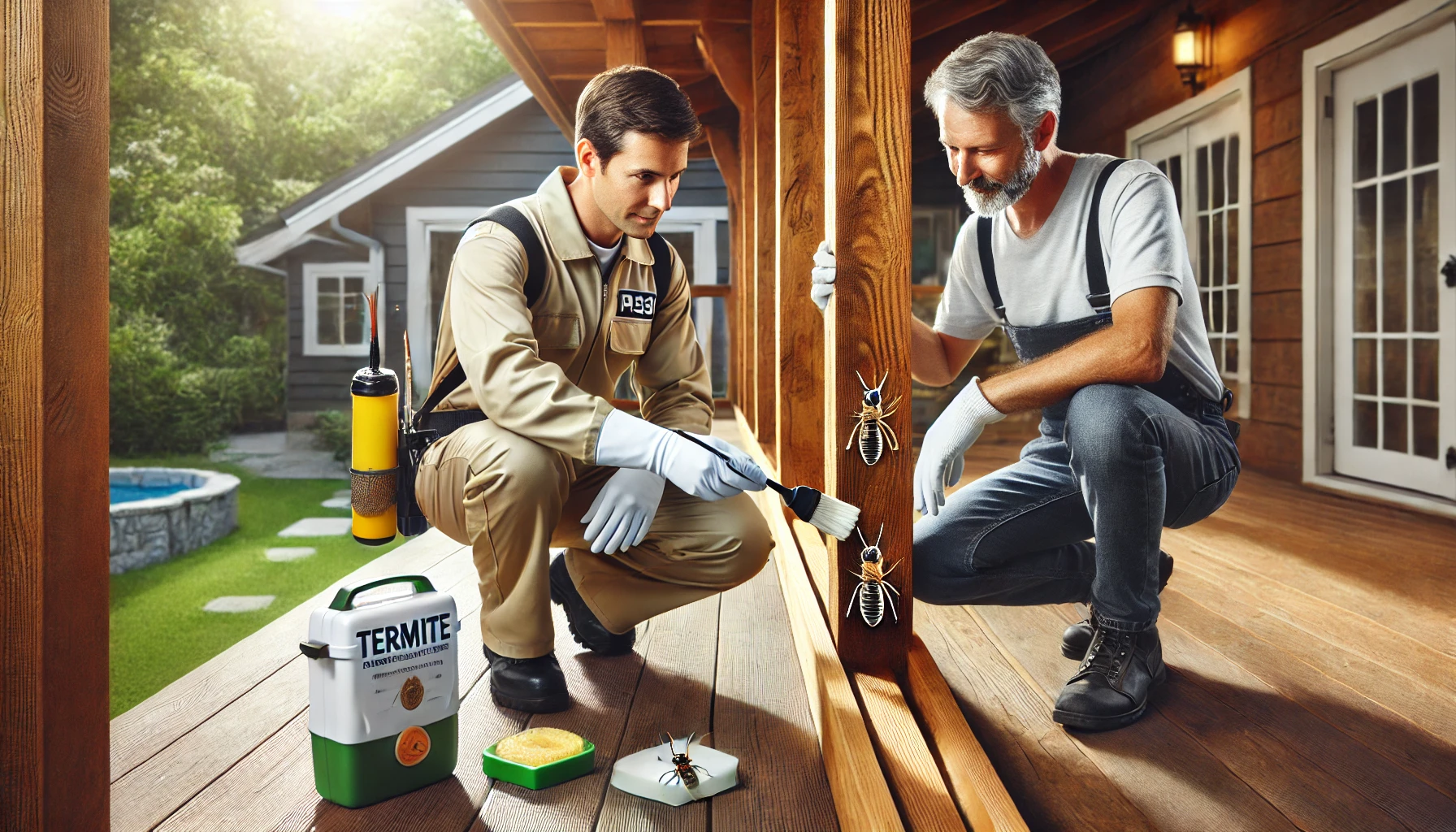
Tips for Preventing Termites
-
Eliminate wood-to-soil contact by using barriers or treated wood and away from your home’s foundation.
-
Reduce moisture levels around your home, especially in crawl spaces.
-
Clean your gutters regularly so water flows away from your home.
-
Check your home periodically for signs of termites.
-
Schedule regular termite inspections with a professional pest control service.
When Should You Call a Pro?
With termites, it’s always better to call in experts right away. If you even suspect termites, act quickly to prevent severe damage. It’s much cheaper to deal with them early, trust me. Earwigs rarely require professionals. Usually, simple steps at home solve the issue. But if they keep showing up indoors, asking an expert can help pinpoint the problem. Let’s Recap: Termites quietly damage homes by eating wood, causing costly repairs. Earwigs look scary, but they’re harmless to your home. Knowing the difference helps you react calmly and appropriately when spotting one of these insects around your property. Next time you see something crawling around—don’t panic. With this information, you’ll know exactly how to handle the situation. You’ve got this!If you are unsure which pest is infesting your home, contact our pest control experts and get a free estimate today!





